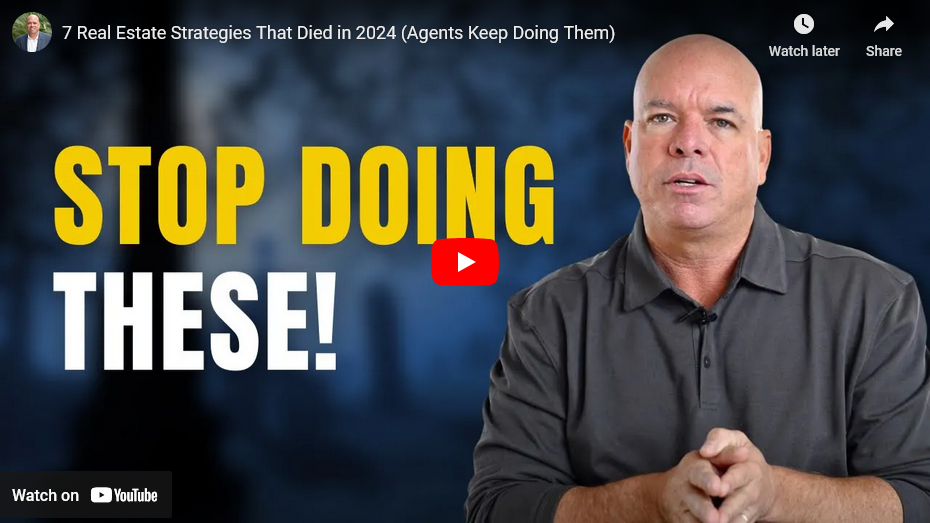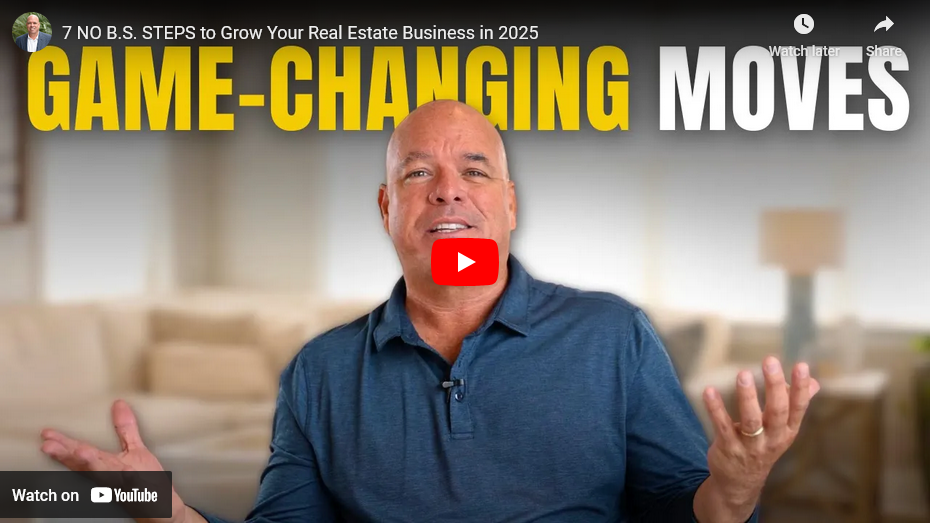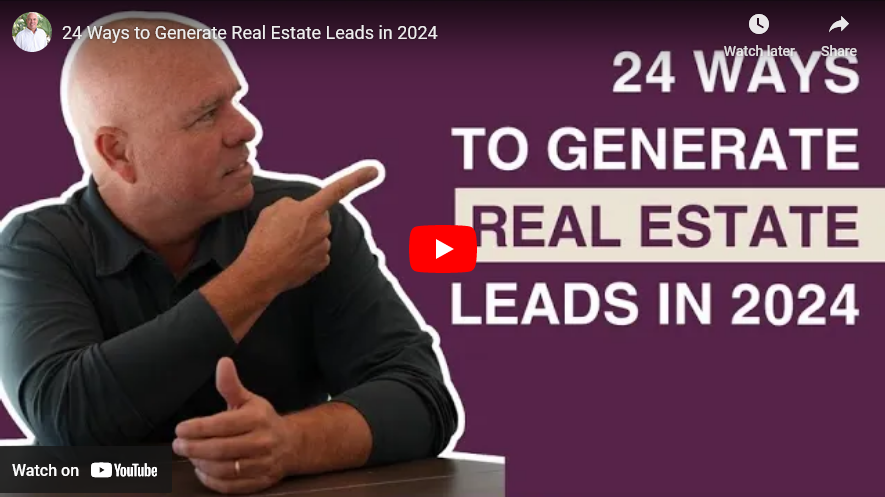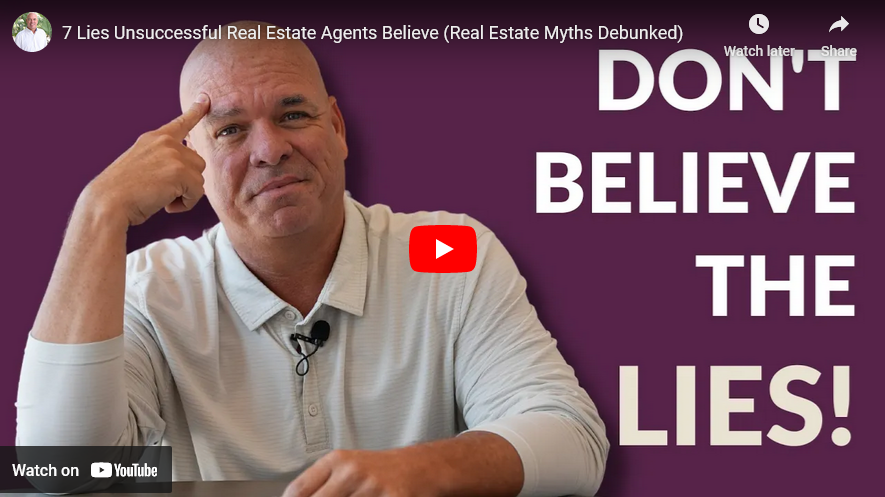In today’s highly competitive real estate market, first-time homebuyers need more information and assistance than ever
by Bernice Ross May 16, 2023
From high-interest rates to a lack of inventory, it’s harder than ever for first-time buyers to find the right home. Even so, there’s much you can do to help your first-time buyers make their dream of homeownership a reality.
Agents must overcome two primary challenges when working with first-time buyers: finding properties to show their buyers and then making sure they are “purchase ready.”
Locating the right properties to show your first-time buyers
Where should you look to find properties that are not listed on the MLS? While the competition for expired listings and For-Sale-by-Owners is fierce, here are some great alternatives.
(Please note: Before showing any property that is not currently listed, always obtain a one-party-listing agreement before introducing it to your buyers.)
1. Hold seller seminars
You’re probably familiar with buyer seminars, but have you ever considered holding a seller seminar? Marriages, divorces, and deaths usually result in changes in property ownership. Given that over half the population is living paycheck to paycheck, financial difficulties may force another large group of struggling homeowners to sell as well.
Potential topics that may attract these potential sellers include “Understanding Your Home’s Value” or “Preparing Your Home for Sale.” Market your in-person or Zoom seller seminars through your print, digital, and social media marketing.
2. Engage the 58% of buyer leads with properties to sell
According to the most recent NAR Profile of Home Buyers and Sellers, 58 percent of the buyer leads (and 77 percent of repeat buyers) own a home. Consequently, follow up immediately on all buyer leads to determine if they also own a home. If they do, schedule a face-to-face appointment as soon as possible. According to NAR, the first agent who meets with a potential seller face-to-face when they’re ready to transact gets the listing 80 percent of the time.
3. Heavily prospect the 55+ market
The NAR Profile also found 65 percent of ALL sellers are 55 or older. Seniors are often forced to move due to financial issues, the loss of a spouse, mobility issues, or their inability to no longer live independently. Take the following steps.
- Tailor your print and digital advertising to focus on the issues that force seniors to sell their current homes. Market by discussing “right-sizing” rather than downsizing.
- Make their move as easy as possible. As my last listing agent told me, “All you have to pack is clothes — I’ll handle the rest.”
- Familiarize yourself with the 55+ independent living communities in your area. Most of these communities have ongoing events that include holiday parties, speakers, local artists, and musicians. Consider regularly sponsoring these events, so that you become known as the realtor who really cares about your community. Remember, being face-to-face is crucial.
4. Tap into the 15 million vacant homes
Kurt Carlton, the president and co-founder of New Western, the largest marketplace for investors who want to flip, rehab, or invest in housing, discovered an interesting statistic in the 2020 Census: there are 15 million vacant homes in America.
While some of these homes are Airbnbs and second homes, Carlton’s data suggests that a substantial portion of these are inherited properties owned by out-of-area owners. Many of these owners are working so hard to keep up with inflation, they don’t have the time or the money to deal with the needed repairs.
A great solution to this issue is Curbio, the nation’s “leading pay-at-closing home improvement solution for real estate agents and their clients.” Curbio prepares the property for market and then deducts the cost at closing.
5. Explore lesser-known neighborhoods
Encourage buyers to view homes in up-and-coming neighborhoods, redevelopment areas, new subdivisions or areas where major retailers are building new stores. In many cases, they may find more affordable options, especially if builders are offering mortgage rate buy-downs and hefty upgrade packages.
6. Prospect ‘lease expired’ listings
Lease expireds can be an excellent source for locating owners who have multiple properties. If your MLS provides this data, search for properties that were leased or expired 8-10 months ago. Because most lease agreements are for one year, these properties may be coming back on the market in the next few months. If the owner has had a difficult tenant, the owner may decide to sell. The tenant, on the other hand, may also be ready to buy.
7. Search active ‘For Rent’ listings
Websites that list “For Rent” listings include Craigslist, HotPads, Realtor.com, Trulia and Zillow. You can also check Oodle.com and Facebook Marketplace for their rental sections.
Be sure to check with your local title company as to who owns the property. The reason? Investors typically own multiple properties. You never know when that owner may want to sell or do a 1031 tax-deferred exchange.
8. Co-market with local businesses
Partner with local businesses to offer exclusive discounts on services for both buyers and sellers. This can include appliance stores, gyms, handymen, hardware stores, landscapers, local restaurants, storage units, etc. This type of marketing creates a win-win situation for everyone involved.
9. Network with other professionals outside the real estate industry
Connect with local professionals such as accountants, attorneys, contractors, financial planners, landscapers, movers, etc. They often have inside information about homeowners who may soon be putting their homes on the market. Look for ways you can support them in their businesses.
Help your first-time buyers become ‘purchase ready’
It’s’ great that you have properties to show, but you must also make sure your buyers are ready to purchase. Here are the steps to take.
1. Attracting the first-time buyer
The biggest challenge first-time buyers face is that 76 percent of all buyers believe that they must have 20 percent down to purchase. They’re not aware of all the low-down-payment mortgage programs available, nor are they aware of how much money is available for down payment assistance (DPA).3
Here’s a simple marketing campaign you can use to reach these potential buyers:
Trying to save up the 20 percent down you need to buy your first home?
Stop waiting — you can buy a home with as little as 3.5 percent down!
Better yet, you may be eligible to get down payment assistance as well.
The average amount last year was $17,000!
Advertisement
Contact Sally Agent at 800-555-1212 to learn more.
Before running this campaign, familiarize yourself with types of low down payment programs that are available, how down payment assistance programs work, and which programs are available in your area. Also, be sure to visit the mortgage options on Zillow to determine which currently listed properties qualify for DPA.
2. Conduct a detailed buyer interview at your first meeting
To discover what properties your buyers are most likely to buy, conduct a 20-30 minute Buyer Interview that focuses on them and their lifestyle. Here’s what to ask:
- When you’re at home, which rooms do you spend the most time in and what do you enjoy doing?
- If you’re spending a full day at home, what activities do you enjoy most?
- How does each member of your household spend their time when they’re at home and what do they enjoy doing?
- If you entertain, what kinds of activities do you and your guests enjoy? (Dinners, barbecues, games, book club, etc.)
- If you’re going out for a fun evening locally, where would you go and what would you be most likely to do?
- Tell me three things you enjoy about living in your present home.
- What is the one thing that you like least about living in your present home and why is it an issue?
Advertisement
During the interview, assess their motivation to purchase by determining how willing they are to meet with a mortgage broker to be pre-approved for a mortgage, whether they have a definitive date when they want to close (often tied to a job transfer or their children starting school), and how quickly they respond to your texts and phone calls.
3. Educate with a first-time buyer’s guide
First-time home buyers often lack basic knowledge about the home-buying process. Create a first-time buyer’s guide that includes the following:
How the homebuying process works
For a detailed explanation of how the house-buying process works, HUD’s website is the most comprehensive. Topics HUD covers include:
- Determining how much the buyer can afford
- Knowing your rights including fair housing, RESPA, borrower’s rights and predatory lending
- How to shop for a loan
- Homebuying programs including information about FHA and lease-to-own programs
- Shopping for a home, including a checklist for comparing homes on showings, home purchase and repair homes, manufactured (mobile homes), and homebuying FAQs
- Making an offer
- Home inspections
- Shopping for homeowner’s insurance
- Settlement and closing procedures
Advertisement
Written evaluation of the current market conditions
In addition to your personal CMA, the new property reports from NARRPR.com and the accompanying charts are amazing. Print these up for each area your buyers are searching so they can make detailed comparisons.
Forms package
Also, give the buyers a packet of forms that includes completed examples of the purchase contract plus any other required disclosures or other documents. Encourage them to review all the forms and to ask questions prior to looking at property.
4. Assess their financial readiness
How can your buyers decide if their financially ready to purchase? Here are several resources to help them in that process.
- Is it cheaper for them to buy or rent? First Republic Guide to Buying vs Renting a Home is an excellent resource for answering this question. You can also share Nerd Wallet’s rent vs. buy calculator to determine the actual cost differences of renting vs. buying.
- If they need help cleaning up their credit: ConsumerAdvocate.org has ranked the various companies that assist people with cleaning up their credit and Money ranks their top seven credit companies, including their top picks for Best Overall, Best Value, Best Discounts, and best DIY Repair.
- Help them understand the borrowing process: Rocket Mortgage has an excellent resource called A Guide To First-Time Home Buyer Programs, Loans And Grants. This includes first-time buyer tips, explanations about the down payment and closing costs, government-sponsored programs, as well as a calculator that can help them determine how much they can afford to borrow.
- “Pre-approval,” not just “pre-qualified”: Before you ever show your buyers any property, encourage them to obtain pre-approval, not just pre-qualification for their mortgage. Also, a great lender can provide them the additional guidance on the topics above.
- Have buyers check with their tax professional before transacting: Prior to making an offer on any property, always have your buyers consult with their tax professional to determine the impact that purchasing a home will have on their taxes.
Advertisement
In today’s highly competitive real estate market, first-time homebuyers need more assistance than ever. Real estate agents who utilize the strategies above can help guide their first-time buyers through the complexities of the housing market, and ultimately, help them make their dreams of homeownership a reality.
Bernice Ross, president and CEO of BrokerageUP and RealEstateCoach.com, is a national speaker, author and trainer with more than 1,000 published articles. Learn about her broker/manager training programs designed for women, by women, at BrokerageUp.com and her new agent sales training at RealEstateCoach.com/newagent.












